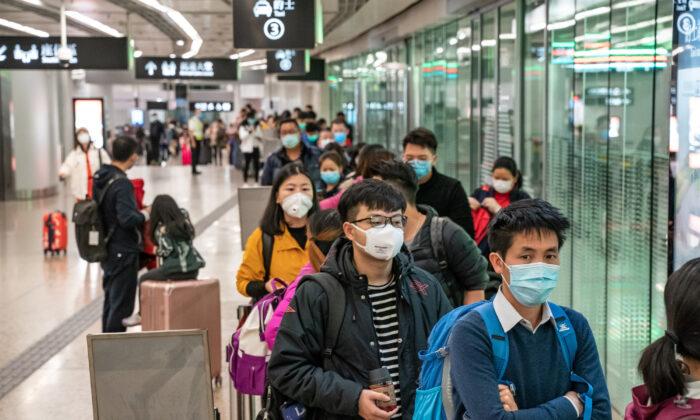Due to growing concerns over China’s ongoing outbreak with the novel coronavirus, American universities and colleges are imposing new restrictions on travel to the country, which is the largest origin for international students in the United States and a leading destination for Americans studying abroad.
Arizona State, Texas A&M, and Duke Universities, among others, have placed travel restrictions on China for their students and faculty, in response to upgraded travel advisories from the Centers for Disease Control and Prevention (CDC) and the U.S. Department of State.
Arizona State University’s travel restrictions came this Tuesday, two days after local health officials announced that “a member of the Arizona State community who does not live in university housing” had tested positive for the coronavirus. The person had recently traveled to the Chinese mega-city of Wuhan, where the outbreak began.
“Arizona State University has issued a travel restriction to China for all university faculty, staff and students, effective immediately,” reads a university statement. “No institution-related travel, such as study abroad or other academic program visits, to China will be authorized or approved by the university. This travel restriction is similar to restrictions many businesses and organizations across the U.S. have implemented.”
Texas A&M University also announced Tuesday that it was suspending all university-sponsored travel for undergraduates. It also urged all faculty, staff, and graduate researchers “to give serious evaluation before requesting to travel to China as it will require pre-approval and only be granted for essential travel.” A local health agency has sent samples from a Texas A&M student who was suspected of showing symptoms of from the coronavirus to the CDC for testing, and negative results came back on Jan. 26.
“Travel to China is considered high risk and no precautions are available to protect against the identified increased risk,” Texas A&M said in its statement.
Meanwhile in Suzhou, some 400 miles from Wuhan, Duke Kunshan University has already postponed the start of the spring semester until Feb. 17. The access to Duke’s Chinese campus was also under restriction. Chinese students from Hubei Province, where the city of Wuhan is located, were advised to stay on campus if they are currently residing there, according to a school statement to parents. Those who traveled back to Hubei during the Chinese New Year break were told to stay where they are until they received further instructions.
In the United States, Duke University also announced on Tuesday that it was immediately restricting all university-funded travel to China by students, faculty, and staff. A close research partner with many Chinese institutions including Wuhan University, Duke also urged its researchers “who are engaged in research or clinical activities in China and need to travel there urgently in the next several weeks should contact their dean, department chair, or unit director to activate the process for an exception to this travel restriction.”
Likewise, New York University has also delayed the start of the new semester at its campus in Shanghai until Feb. 17. Many courses the school offers have been moved online, allowing students in China to study remotely.





